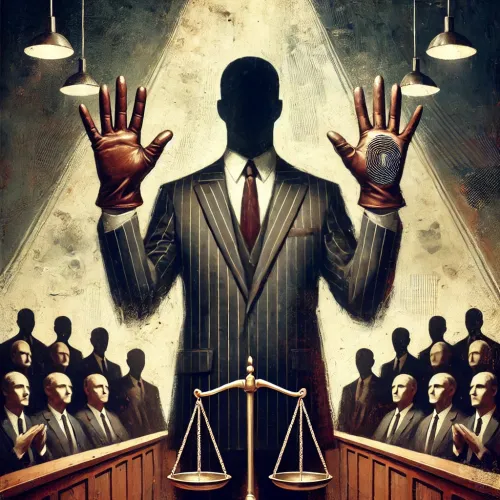The principle of "Protection from Retribution" is fundamental to the functioning of the jury system, particularly concerning the practice of jury nullification. It ensures that jurors can deliberate and render verdicts based on their honest convictions without fear of legal consequences, personal retaliation, or societal backlash. This protection is crucial in maintaining the independence and integrity of the jury as a cornerstone of the judicial process.
Legal Framework
In the United States, jurors are granted immunity from prosecution or civil liability for the decisions they make during deliberations. This immunity is rooted in the common law tradition and is reinforced by various legal precedents. For instance, the U.S. Supreme Court has acknowledged that jurors cannot be punished for their verdicts, even if those verdicts result from jury nullification. This principle is essential in upholding the sanctity of the jury's deliberative process and ensuring that jurors can exercise their duties without external pressures.
Jury Nullification and Retribution
Jury nullification occurs when jurors acquit a defendant despite evidence of guilt because they believe that the law is unjust or its application in the case would lead to an unjust outcome. This act of conscience allows jurors to serve as a check on legal statutes and governmental authority, reflecting the moral and ethical standards of the community. However, without protection from retribution, jurors might hesitate to engage in nullification due to fear of legal consequences or personal harm.
Historical Context
Throughout history, there have been instances where jurors faced threats or actual retribution for their verdicts, particularly in politically charged cases. For example, during the colonial era, jurors who refused to convict individuals under oppressive laws risked punishment from the ruling authorities. The trial of William Penn in 1670 is a notable instance where jurors were fined and imprisoned for delivering a verdict contrary to the court's direction. Such historical events underscore the necessity of protecting jurors from retribution to preserve the integrity of the judicial process.
Modern Legal Protections
Today, legal systems have established safeguards to protect jurors from retribution. These include:
- Secrecy of Deliberations: Jury deliberations are conducted in private, and jurors are generally prohibited from disclosing the content of their discussions. This confidentiality ensures that jurors can speak freely and make decisions without fear of external judgment or influence.
- Anonymity: In many cases, the identities of jurors are kept confidential during and after the trial to protect them from potential harassment or retaliation.
- Legal Immunity: Jurors are immune from legal action based on their verdicts. This means they cannot be sued or prosecuted for the decisions they make as part of a jury.
Ethical Considerations
While protection from retribution is essential, it also raises ethical considerations. For instance, if jurors are completely insulated from accountability, there is a risk that they might base their decisions on personal biases rather than the evidence and the law. Therefore, it is crucial to balance juror protection with mechanisms that promote responsible and impartial deliberation.
Challenges and Criticisms
Despite existing protections, challenges remain in ensuring that jurors feel secure in exercising their judgment. High-profile cases can attract media attention, potentially exposing jurors to public scrutiny. Additionally, in some jurisdictions, there have been debates about whether jurors should be informed of their right to engage in nullification, with concerns that such knowledge might lead to its misuse.
Protection from retribution is a vital component of the jury system, enabling jurors to fulfill their roles without fear of consequences. This protection upholds the jury's function as an independent body capable of delivering justice that reflects the community's moral and ethical standards. In the context of jury nullification, such protection ensures that jurors can act according to their conscience, serving as a check on unjust laws and governmental overreach. Maintaining and reinforcing these protections is essential for the continued integrity and effectiveness of the judicial process.



